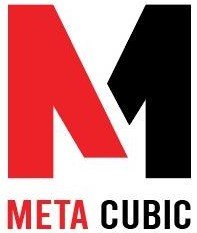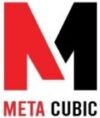Exploring the Top Python Frameworks
It offers a wide range of frameworks that developers can utilize to streamline their development process and build robust applications efficiently. In this article, we will explore some of the top Python frameworks and highlight their key features, use cases, and advantages.
Introduction
Python frameworks provide a structured and organized way to develop web applications, APIs, and other software solutions. They offer pre-defined libraries, tools, and templates that simplify common development tasks, making it easier for developers to focus on writing application-specific code.
Django
Django is a high-level Python web framework that follows the model-view-controller (MVC) architectural pattern. It emphasizes code reusability, rapid development, and the principle of “Don’t Repeat Yourself” (DRY). Django provides built-in features for URL routing, form handling, database modeling, and user authentication, making it a popular choice for building complex web applications.
Key Features of Django:
- Object-Relational Mapping (ORM): Django’s ORM allows developers to interact with databases using Python objects, eliminating the need for writing raw SQL queries.
- Admin Interface: Django offers an intuitive admin interface that allows developers to manage application data without writing additional code.
- Authentication and Authorization: Django provides robust authentication and authorization mechanisms, including user management, permissions, and access control.
- Templating Engine: Django’s template engine simplifies the process of generating dynamic HTML content.
- Internationalization and Localization: Django supports multi-language applications and provides tools for translating text strings.
Use Cases for Django:
- Content Management Systems (CMS): Django’s comprehensive feature set makes it suitable for building CMS platforms that require user management, content publishing, and customization options.
- E-commerce Websites: Django’s scalability and security features make it a great choice for developing online stores with complex product catalogs, shopping carts, and payment gateways.
- Social Media Platforms: Django’s robustness and authentication features enable developers to create social media applications that handle user registration, profile management, and interaction between users.
Advantages of Django:
- Rapid Development: Django’s built-in functionalities and code-generation tools accelerate the development process, allowing developers to build applications quickly.
- Community and Ecosystem: Django has a large and active community, which ensures continuous development, bug fixes, and availability of third-party packages.
- Security: Django follows security best practices and provides protection against common web vulnerabilities such as cross-site scripting (XSS) and cross-site request forgery (CSRF).
- Scalability: Django is designed to handle high traffic and can be easily scaled by leveraging caching, load balancing, and distributed computing techniques.
Flask
Flask is a micro web framework for Python that is lightweight and easy to use. It provides a minimalistic approach to web development, giving developers the flexibility to choose the components they need while keeping the core framework simple. Flask is ideal for small to medium-sized applications and APIs where simplicity and extensibility are essential.

Key Features of Flask:
- Routing and URL Mapping: Flask allows developers to define URL patterns and associate them with specific view functions, enabling clean and elegant URL structures.
- Templating: Flask integrates with Jinja2, a powerful and flexible templating engine that helps generate dynamic HTML content.
- Built-in Development Server: Flask provides a built-in development server, allowing developers to quickly test and debug their applications during the development phase.
- Lightweight and Modular Design: Flask’s modular design allows developers to choose and integrate various extensions based on their project requirements.
Use Cases for Flask:
- Prototyping and Small Projects: Flask’s simplicity and ease of use make it an excellent choice for prototyping new ideas or developing small-scale applications quickly.
- RESTful APIs: Flask’s lightweight nature and support for extensions like Flask-RESTful make it suitable for building RESTful APIs with minimal overhead.
- Single-Page Applications (SPAs): Flask can be combined with client-side frameworks like React or Angular to develop SPAs that consume data from APIs.
Advantages of Flask:
- Simplicity: Flask’s minimalistic design and straightforward API make it easy to learn and use for developers of all experience levels.
- Extensibility: Flask provides a wide range of extensions and plugins that developers can utilize to add functionality to their applications as needed.
- Flexibility: Flask allows developers to choose the components they need, enabling them to build customized solutions tailored to their specific requirements.
- Documentation and Community: Flask has extensive documentation and a supportive community, providing resources and assistance to developers.
Pyramid
Pyramid is a lightweight, open-source web framework that follows the minimalist philosophy of “There should be only one way to do it.” It focuses on flexibility and simplicity, allowing developers to build applications of any size or complexity. Pyramid is known for its excellent documentation, which makes it beginner-friendly and suitable for large-scale projects.
Key Features of Pyramid:
- URL Dispatch: Pyramid uses a URL dispatch system that maps URLs to view functions, providing flexibility and control over the application’s URL structure.
- Authorization and Authentication: Pyramid offers various authentication and authorization mechanisms, including integration with third-party authentication providers.
- Configuration and Extensibility: Pyramid allows developers to configure the framework’s behavior using Python code, promoting flexibility and customization.
- Testing and Debugging: Pyramid provides tools and utilities for unit testing, integration testing, and debugging applications.
Use Cases for Pyramid:
- Large-scale Applications: Pyramid’s flexible architecture and support for advanced features make it suitable for developing large-scale applications with complex requirements.
- APIs and Web Services: Pyramid’s modular design and support for various content types make it an excellent choice for building APIs and web services.
- Rapid Prototyping: Pyramid’s simplicity and ease of use make it ideal for quickly prototyping new ideas and concepts.
Advantages of Pyramid:
- Flexibility: Pyramid’s philosophy of flexibility allows developers to choose the best tools and libraries for their projects, enabling customization and extensibility.
- Performance: Pyramid’s lightweight design and efficient request/response handling make it performant, even under high loads.
- Documentation: Pyramid has extensive documentation that covers all aspects of the framework, making it easy for developers to learn and use.
- Community: Pyramid has an active community that provides support, guidance, and third-party packages for various use cases.
Conclusion
Python offers a wide range of frameworks that cater to different development needs and preferences. Django, Flask, Pyramid, and several other frameworks discussed in this article provide developers with the necessary tools and abstractions to build robust and scalable applications efficiently. Whether you’re a beginner or an experienced developer, exploring and mastering these frameworks will undoubtedly enhance your Python development skills.







